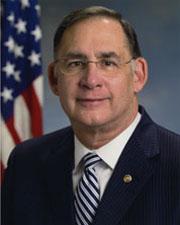S. 1315: To amend the Internal Revenue Code of 1986 to provide a refundable credit for certain home accessibility improvements.
The bill, identified as S. 1315, is proposed legislation aimed at amending the Internal Revenue Code of 1986 to establish a refundable tax credit for certain home accessibility improvements. Here’s a breakdown of what the bill entails:
1. Refundable Tax Credit for Home Accessibility Improvements
The bill proposes a tax credit for individuals who make qualified home accessibility improvements to their principal residence. The main aspects include:
- Credit Amount: Individuals can receive a tax credit equal to 35% of the qualified expenditures made for home improvements.
- Annual Limitation: The credit can be claimed for up to $10,000 in qualified expenditures per taxable year, with a lifetime cap of $30,000.
- Income Limits: The credit gradually decreases for individuals with modified adjusted gross incomes over certain thresholds. For example, the threshold is $400,000 for joint filers, and $200,000 for single filers and heads of household.
2. Qualified Individuals
To qualify for the credit, the individual must meet specific criteria, including:
- Being diagnosed with a disability or being blind and receiving certain benefits.
- Having a disability certification filed with the Secretary of the Treasury.
- Reaching the age of 60.
- The individual’s spouse or dependents may also qualify if they meet similar criteria.
3. Qualified Home Accessibility Improvement Expenditures
The bill outlines what constitutes "qualified improvement expenditures," which include:
- Installation of ramps for no-step entries.
- Modification of bathrooms to improve accessibility.
- Widening of doorways and hallways.
- Installing grab bars and handrails.
- Improving lighting and installing non-slip flooring.
- Adding bedrooms or bathrooms on the main floor.
- Installation or modification of assistive technologies.
4. Regulatory and Guidance Provisions
The Secretary of the Treasury is tasked with:
- Issuing regulations to specify eligible improvements within 180 days of the bill's enactment.
- Conducting outreach to inform the public about the credit and its accessibility.
- Maintaining a list of modifications that meet the qualifying criteria.
5. Special Considerations
- The dollar amounts in the bill will be adjusted for inflation starting from the 2025 tax year.
- The bill prohibits claiming costs for the same expenditure towards another tax benefit in the same year.
- Married individuals filing separately are not eligible for the credit.
6. Study and Reporting Requirements
Within three years of enactment, the Comptroller General must conduct a study assessing the effectiveness of the tax credit in enhancing accessibility within homes and improving the living conditions of qualified individuals. This includes analyzing:
- Residential units served by the program.
- Impact on emergency visits, hospital stays, and Medicare costs.
- Recommendations for improving the credit and its accessibility.
7. Effective Date
The amendments proposed in this bill will take effect for taxable years beginning after December 31, 2024.
Relevant Companies
- PHM (PulteGroup, Inc.): This company may see an increase in demand for construction services related to home modifications that enhance accessibility.
- TOL (Toll Brothers, Inc.): As a home builder, the firm could be directly affected through an increase in requests for accessible housing options.
- HD (The Home Depot, Inc.): The bill could lead to increased sales for home improvement products needed to make homes more accessible.
- LOW (Lowe's Companies, Inc.): Similar to Home Depot, Lowe's may benefit from the demand for products related to accessibility renovations.
This is an AI-generated summary of the bill text. There may be mistakes.
Sponsors
2 bill sponsors
Actions
2 actions
| Date | Action |
|---|---|
| Apr. 07, 2025 | Introduced in Senate |
| Apr. 07, 2025 | Read twice and referred to the Committee on Finance. |
Corporate Lobbying
0 companies lobbying
None found.
* Note that there can be significant delays in lobbying disclosures, and our data may be incomplete.
































